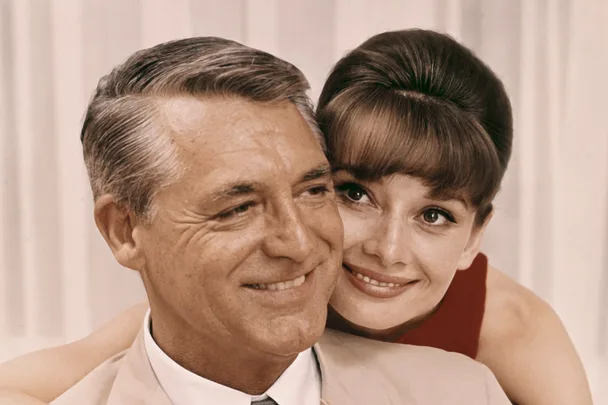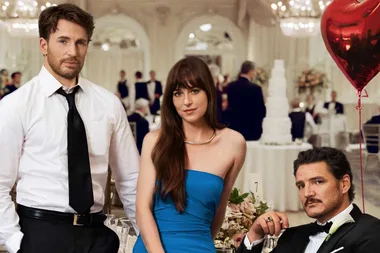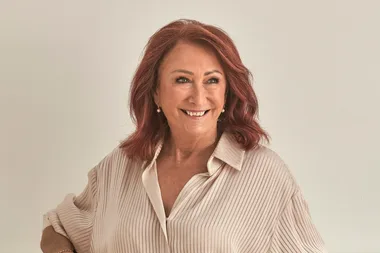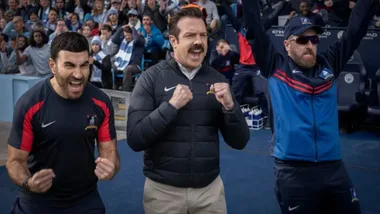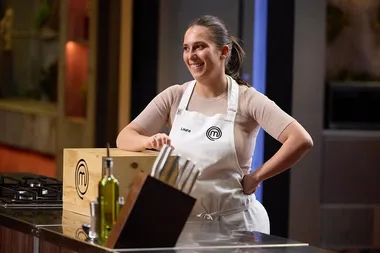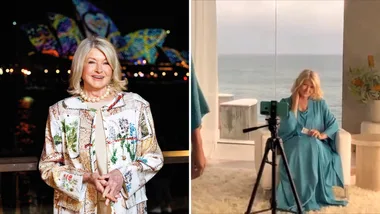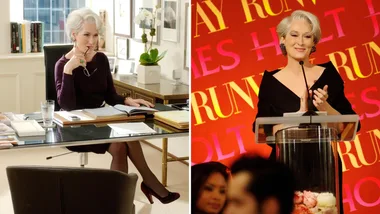Stanley Dolan was in something a pickle. The acclaimed director of classics such as Singin’ in the Rain (1952) and Seven Brides for Seven Brothers (1954), plus many more, had finally been handed the script he felt he’d been waiting his whole career for. But getting the two perfect leads on board? That was another matter …
Based on a popular magazine serial, Charade was a comedic mystery thriller in the vein of Hitchcock’s North by Northwest (1959), a film Stanley had been dying to emulate in his own fashion.
The plot follows the travails of young widow Regina “Reggie” Lampert, who has discovered her husband was murdered after stealing $250,000 in gold. A chance meeting with debonair stranger Peter Joshua sees the pair team up to find what has happened to the missing money. But is Peter who he says he is?
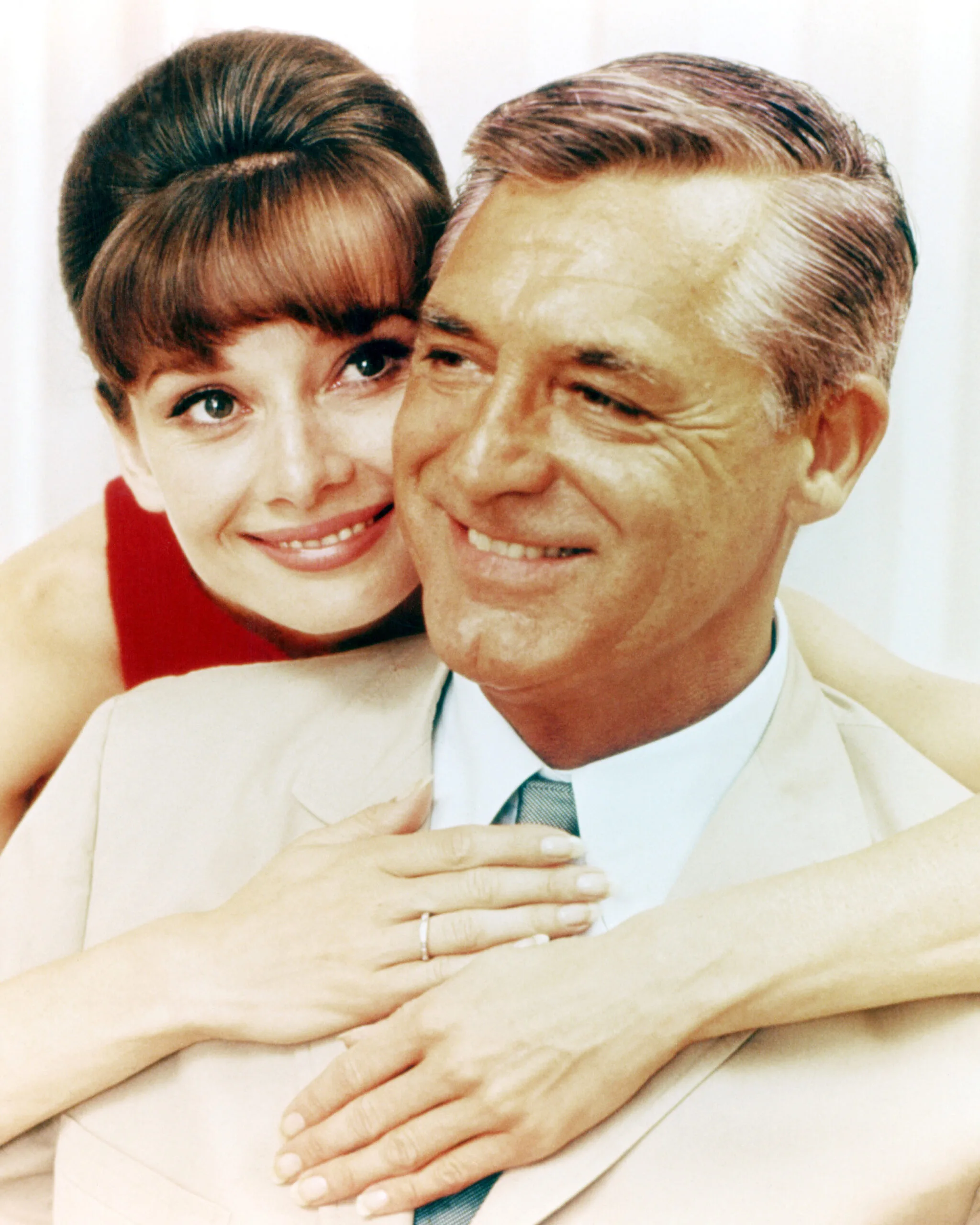
Having directed her in the 1957 hit Funny Face, Stanley had already found his ideal Reggie in Audrey Hepburn. And he knew in his bones that this tale of deception and mistaken identity was the perfect vehicle for Cary Grant.
Cary had played the lead in North by Northwest to huge success, was suave and debonair, a master at the art of portraying mystery and intrigue, and a guaranteed box-office draw.
The problem? Cary had already turned down no fewer than three chances to work opposite Audrey. And the one time they’d met, Stanley recalled with dismay, it had been far from a raging success.
Cary had been first choice to play the romantic leads in Audrey’s films Roman Holiday (1953), Sabrina (1954) and Love in the Afternoon (1957). However, uncomfortable with their 25-year age difference – he believed it unseemly for a man his age to romance someone so young on screen – he’d turned down each offer, with the roles eventually going to Gregory Peck, Humphrey Bogart and Gary Cooper respectively.
And that fateful prior meeting? It had happened just a few years earlier at a dinner party Stanley himself had hosted. As he introduced the pair, Audrey, nervous at meeting one of her favourite actors, managed to spill a bottle of red wine down Cary’s stylish cream-coloured suit. True to form, Stanley recalled, the actor was gracious when calming the flustered younger star – but maybe he still held a grudge?
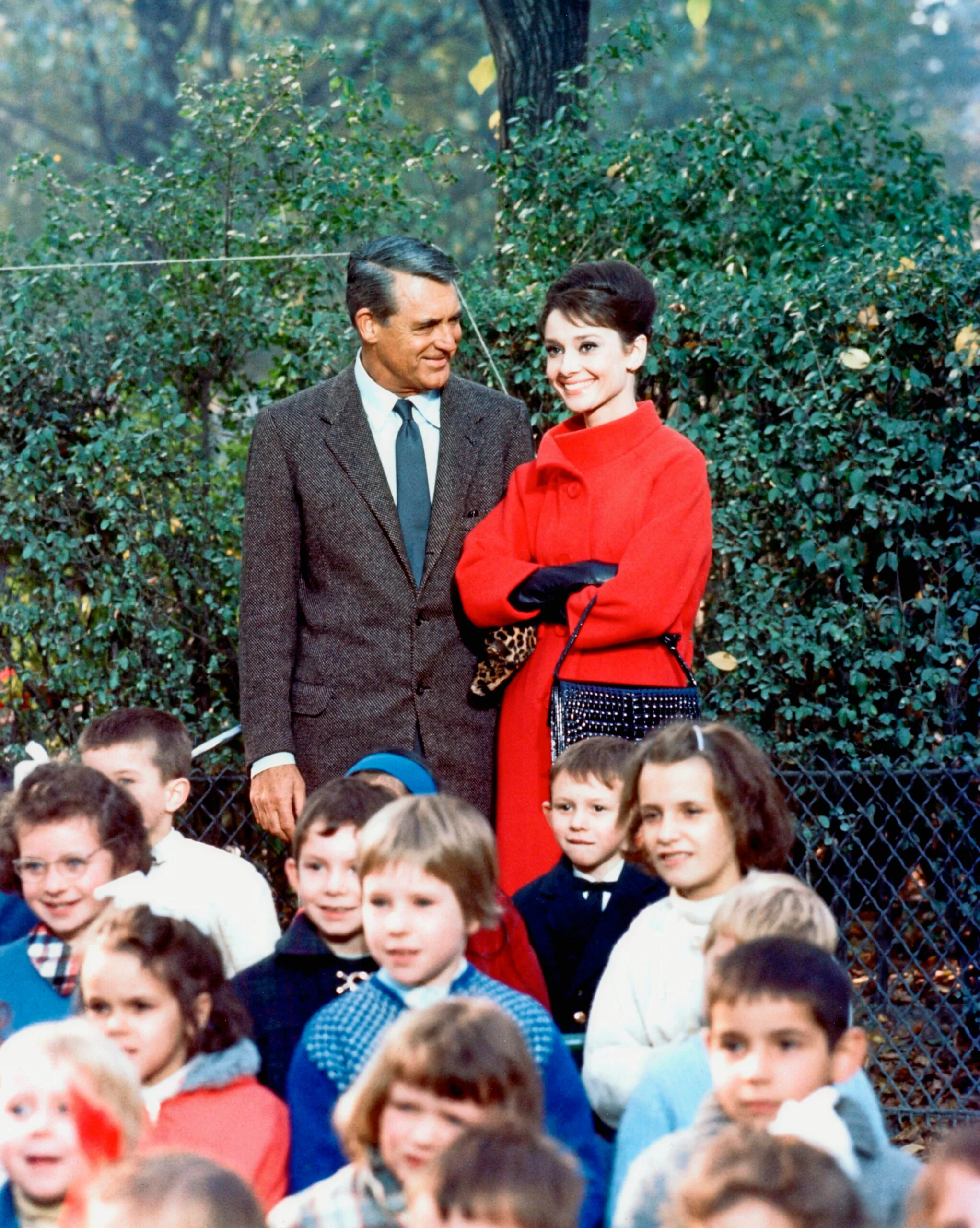
And so he crossed his fingers tightly and asked the question, only for the inevitable to happen. Once again, Cary gave a firm no. The script asked him to be the one wooing his leading lady, but his stance on that had not changed. He refused to be seen as a lecherous near-60-year-old pursuing a woman half his age.
What if, asked Stanley, he rewrote it so that Audrey’s character was the one pursuing Peter Joshua? That could work, Cary responded. Joyously, Stanley prepared to go into production.
“And then I lost Cary Grant,” he recalled years later of the moment his heart sunk into his stomach. “He said, ‘Stanley, I’m sorry, but I’m going to do this movie with [director] Howard Hawks. I promised Howard, I’ve made a lot of movies with him and I said I’d do it.’ I said, ‘Oh God!’ And he said, ‘You’d have to wait a year or two years and you don’t want to do that.’”
Bitterly disappointed, Stanley went in search of a substitute. Paul Newman and Warren Beatty were each briefly considered before being dismissed. And then, to his surprise, the director received an early morning phone call from his old friend Cary, asking him out for breakfast.
“We went to breakfast and he said, ‘I read Howard’s script last night,’” Stanley would chuckle of the history-defining moment. “‘Is your script still available?’”
Finally, a Cary Grant and Audrey Hepburn movie would finally be made.
As the cameras started rolling n Paris in the autumn months of 1962, it was clear from the outset that magic was happening.
The chemistry between 58-year-old Cary and 33-year-old Audrey was – as Stanley knew it would be – electric. With lines having been rewritten to allay Cary’s fears of being seen as a “cradle-snatcher”, their comic timing and repartee sparkled effortlessly. And the pair quickly formed what would prove to be a lifelong friendship.
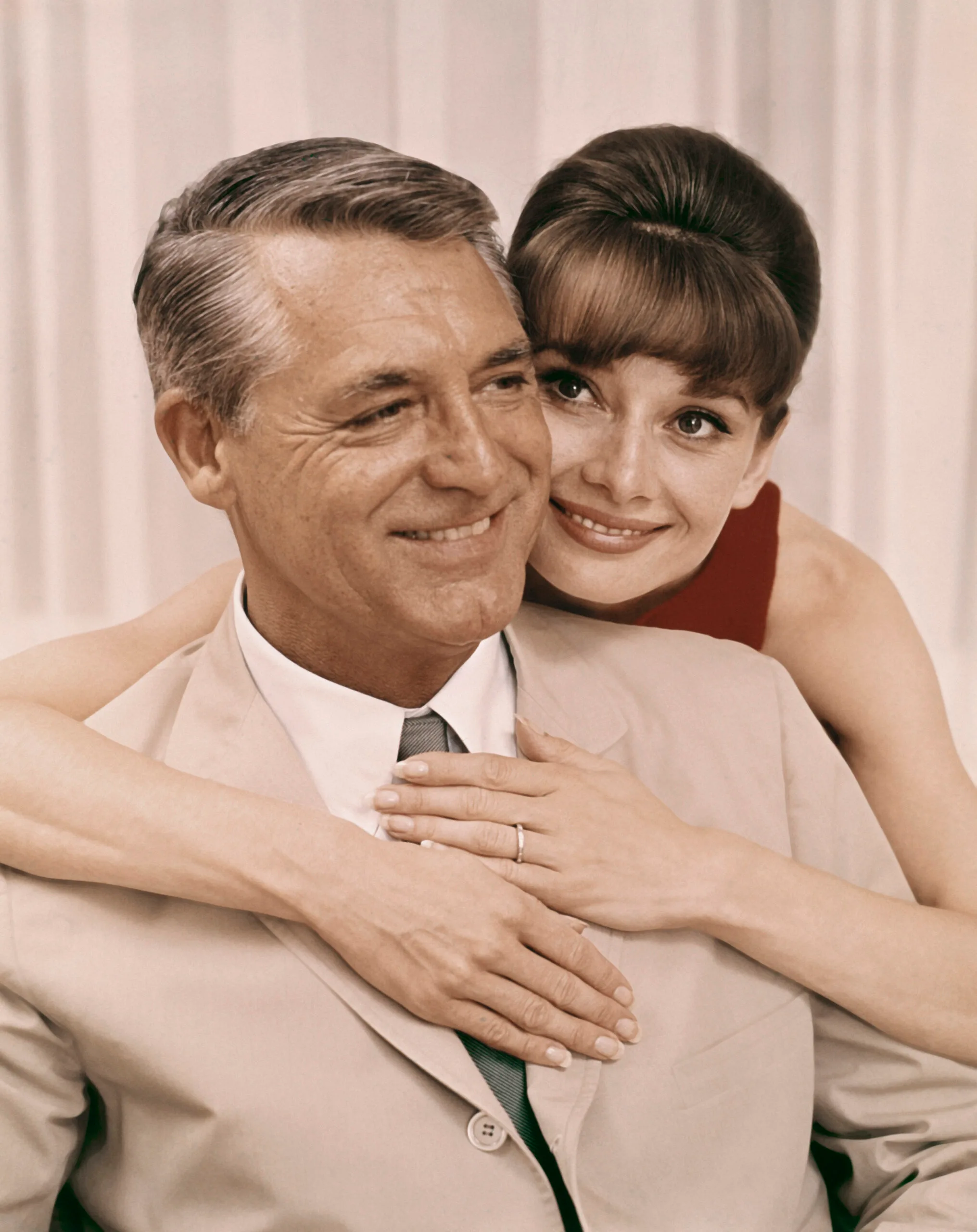
Thomas Chelimsky, who at just six years of age played the pivotal role of young Jean-Louis Gaudel in the film, would decades later recall the ease and inclusion he felt despite being in the presence of two acting greats.
Of Audrey, he said, “We had just had a great time together. I would sit on her lap. She taught me the alphabet in English.” Cary, he admitted may not have been “very fond of kids in general, but somehow we struck up a relationship and he became more and more friendly with me.
“There was a magic on the set,” he recounted. As a child he had no concept of fame until, when they were all standing at the hotel buffet one night, a woman remarked, “That man looks almost exactly like Cary Grant.” Upon being told it was, in fact, the star himself, she fainted.
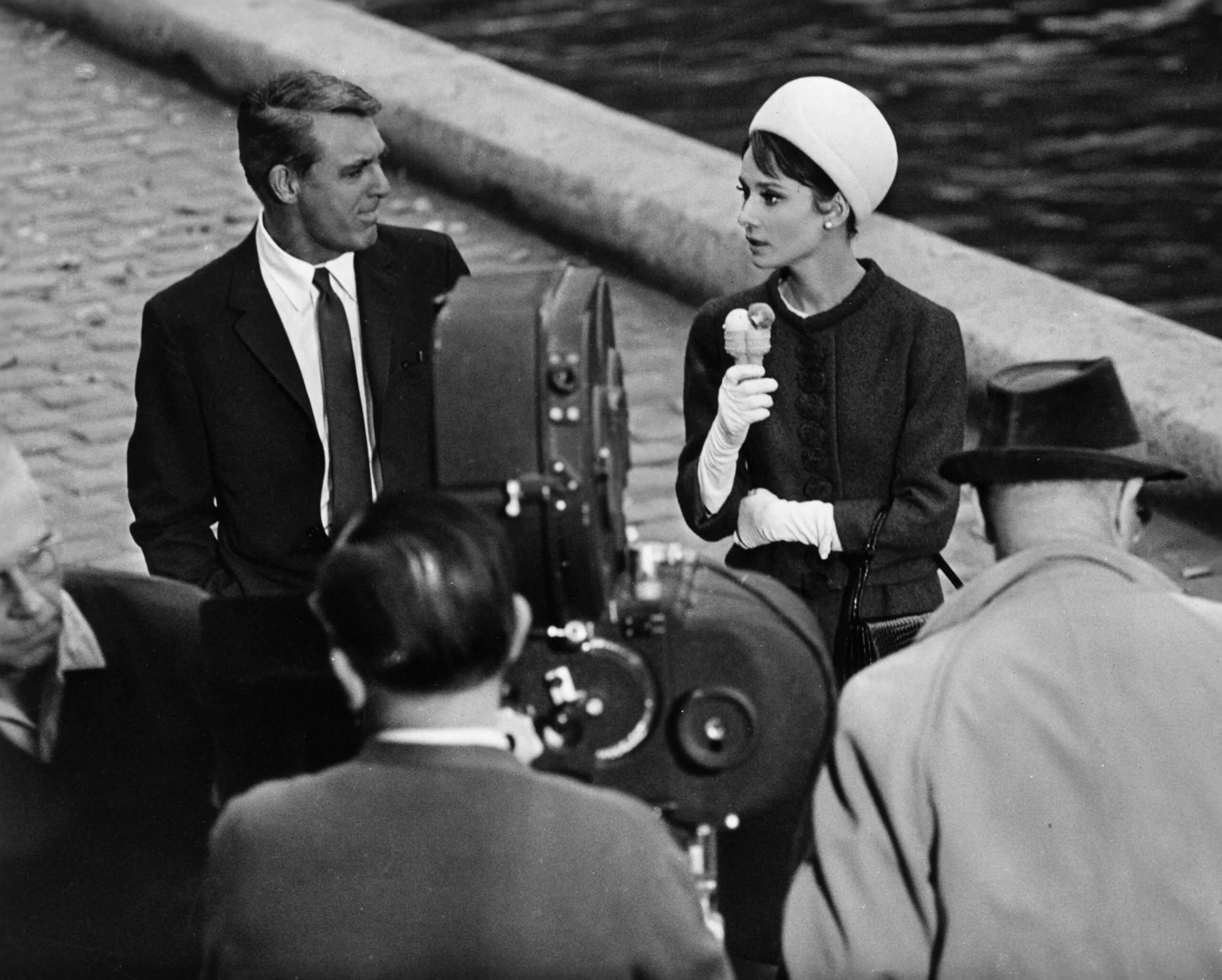
The film’s first screening would be held in early December 1963 at Radio City Music Hall in New York. The world was still reeling in shock at the assassination of President John F. Kennedy just three weeks earlier. In such a fractured time, never was there a better moment for the release of a classic Hollywood film filled with lustre and illusion. Nor for film fans to see Cary Grant and Audrey Hepburn – two of the most attractive, acclaimed and popular actors of all time – finally make their debut as a pairing against a backdrop of the glittering city of love, Givenchy costumes and a soaring Henri Mancini score.
Despite the freezing temperatures, an eager queue of fans had formed by 6am, snaking down 50th Street and 6th Avenue. And nobody was left disappointed. It was, declared critics, “the best Hitchcock film that Hitchcock never made.”
“All I want for Christmas is another film with Audrey Hepburn,” Cary declared, adding that the experience of working with the popular leading lady had been “wonderful”.
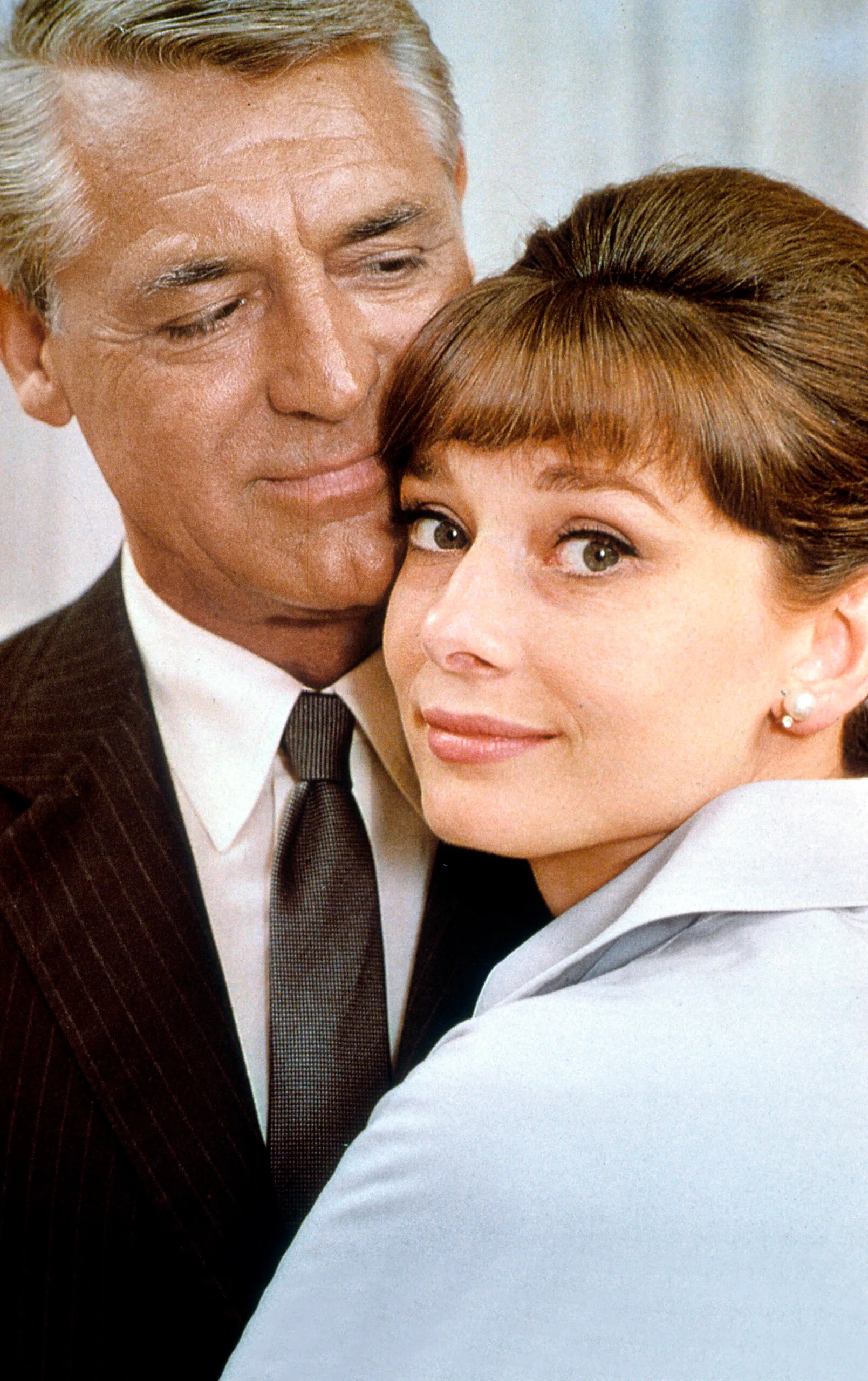
Sadly he would never get that chance. Nor, in the end, would he want to continue making films at all.
Charade, he would confide to friends, was to him the official end of Hollywood’s Golden Age. The rise o the medium of television, the deaths of many of the genre’s most iconic stars, the abandonment of the restrictive morality of the Hays Code, and a shift in power from actors and studios to directors would see the style of films that had made him a star all but fade away. He would go on to make two more movies, but by the age of 62 in 1966, Cary quit acting to focus on his growing business interests.
“I could have gone on acting and playing a grandfather or a bum,” he would later say of his decision, which coincided with the birth of his daughter Jennifer. “But I discovered more important things in life.”
For her part, Audrey soon followed his lead. In 1967 she would earn her fifth Academy Award nomination for her work on the thriller Wait Until Dark. It was a tough shoot, taking place while she was on the brink of divorcing her husband, Mel Ferrer – who was also the film’s producer. That same year, she too would announce her retirement from acting, choosing instead to focus on her young family and then later humanitarian work.
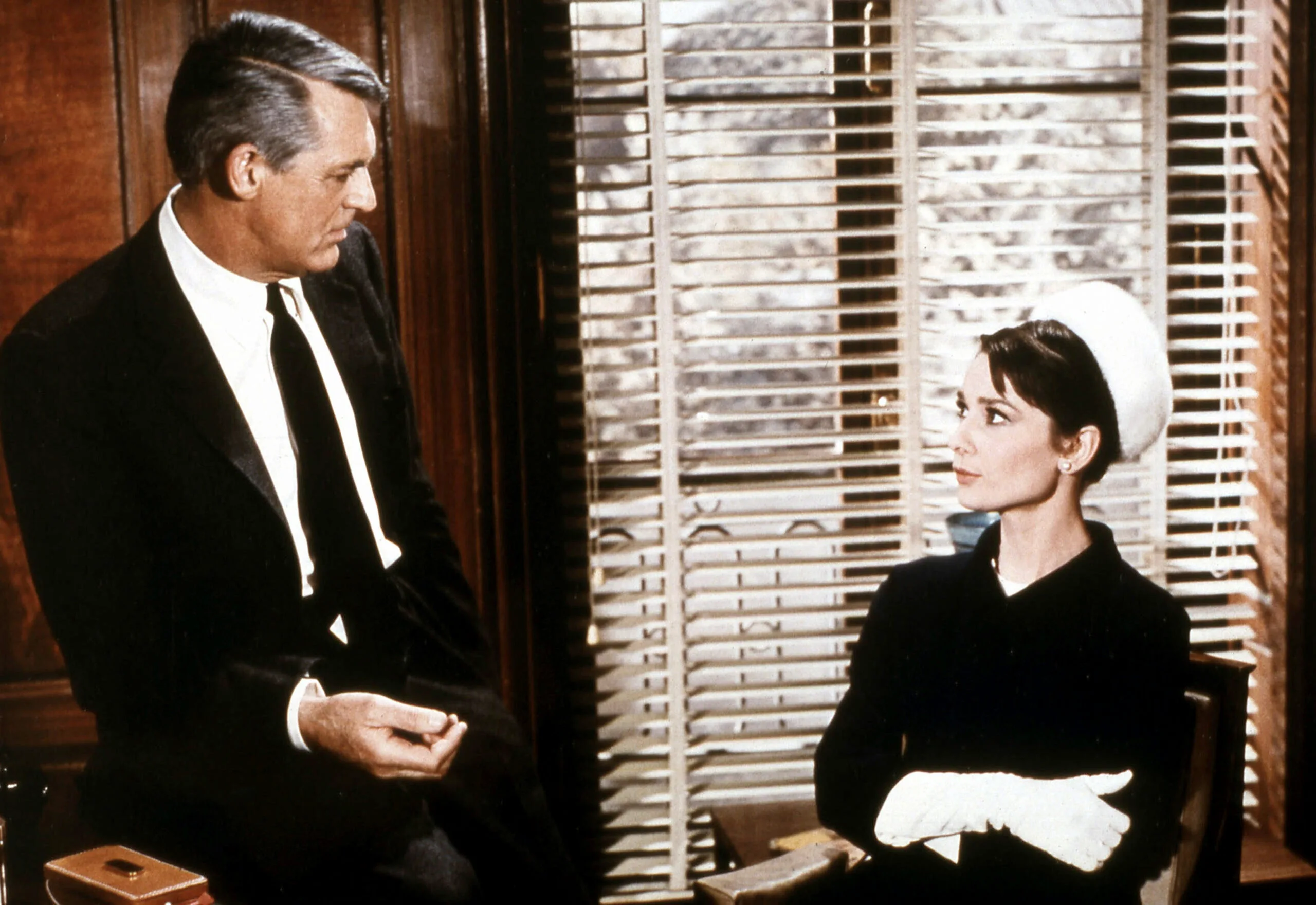
Both Cary Grant and Audrey Hepburn were private people, giving few interviews and revealing even less about their personal lives. But according to those who knew the duo, they retained the firm friendship formed on the set of Charade over the decades that followed.
In 1981, Cary was accorded a Kennedy Centre Honor for lifetime achievement. As he sat in the star-studded audience watching the action unfold on stage, his jaw dropped when Audrey swept in to bestow the award – he had not been told his friend had been called upon for the big moment.
“If all the world’s a stage and all the men and women merely players, then here’s a very special player who has also been our friend,” Audrey said as tears began welling in her former co-star’s eyes. “For what is friendship if not a willingness to give?”
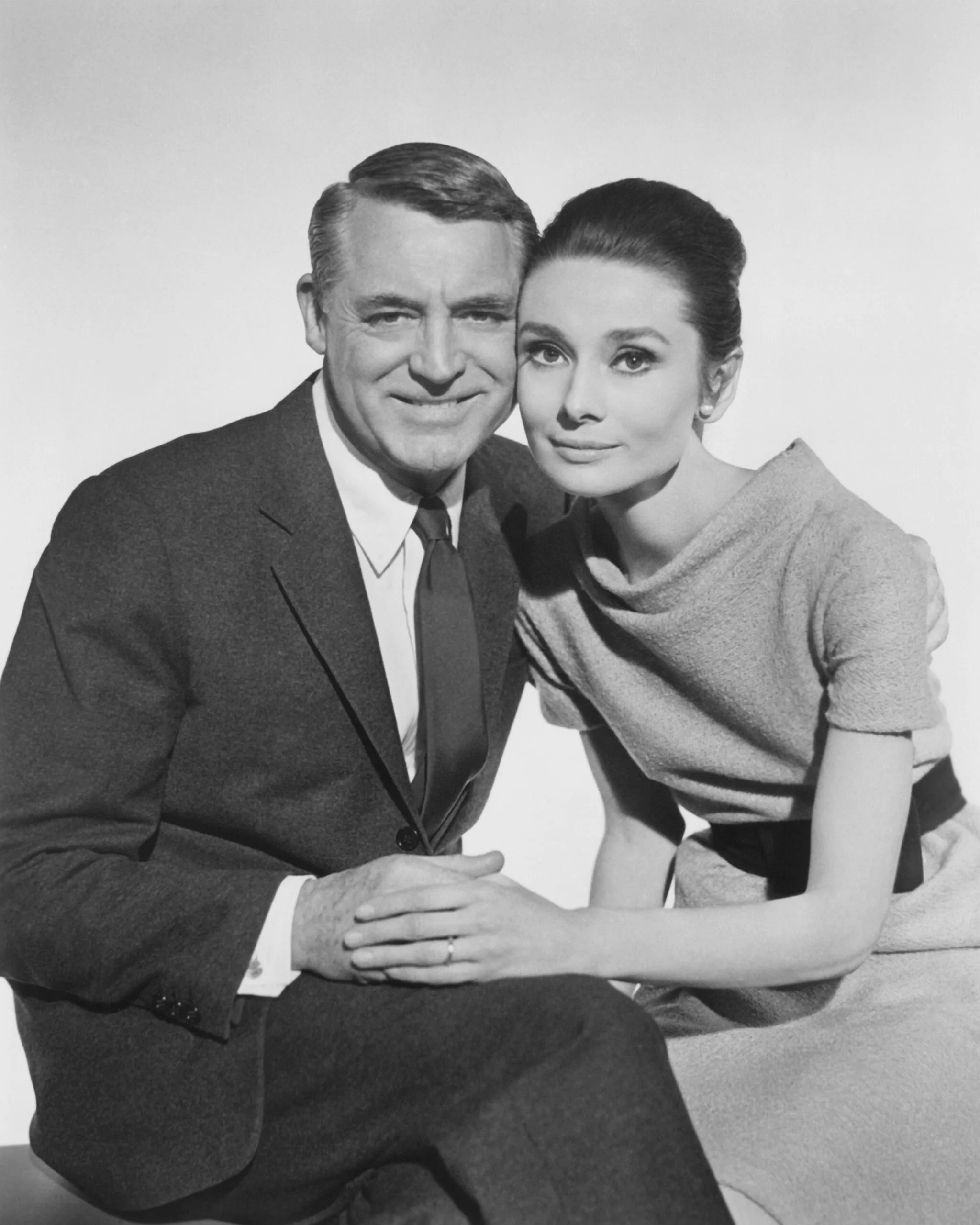
Delivering an impassioned speech extolling Cary’s virtues, she concluded with the words, “In gratitude and love I end, you have truly been a friend.”
By this stage Cary’s tears were freely running, the pair blowing air kisses across the bustling theatre to each other as the crowd erupted in rapturous applause.
It would be the last time the two were publicly seen together. Five years later, Cary, aged 82, would suffer a fatal stroke, passing away with his fifth wife Barbara Harris by his side. Meanwhile, Audrey spent her final years working for UNICEF and received the Presidential Medal of Freedom in 1992. Sadly, just one month later she succumbed to cancer, dying at home in Switzerland at the age of 63.
While Cary Grant and Audrey Hepburn may no longer be with us, the enduring legacy of their work on Charade remains. A film that truly stands the test of time and is listed among the finest in history, it’s a celebration of what can happen when the greatest stars collide.
Stream Charade now on BINGE with a seven-day free trial. Subscribe here.
